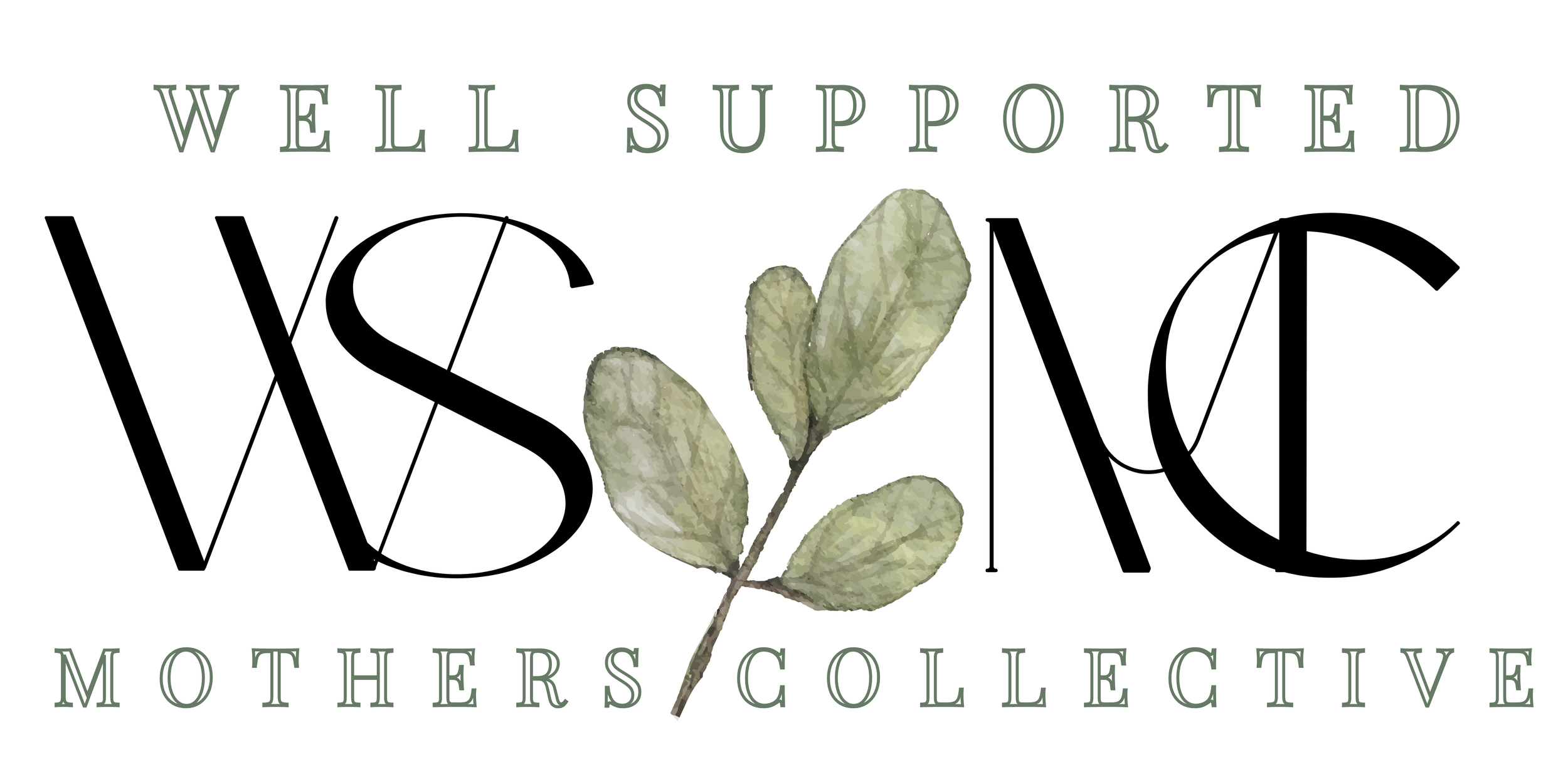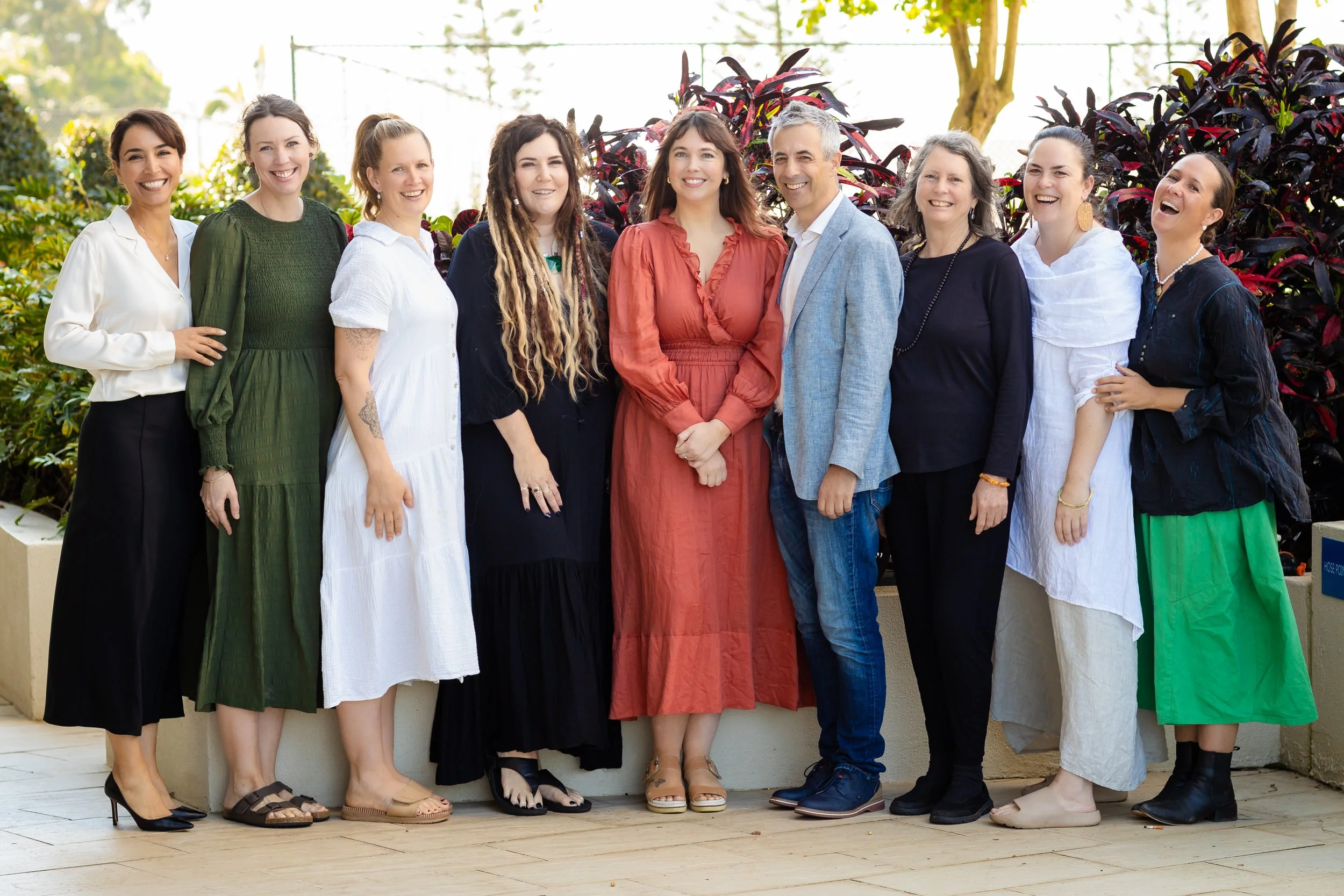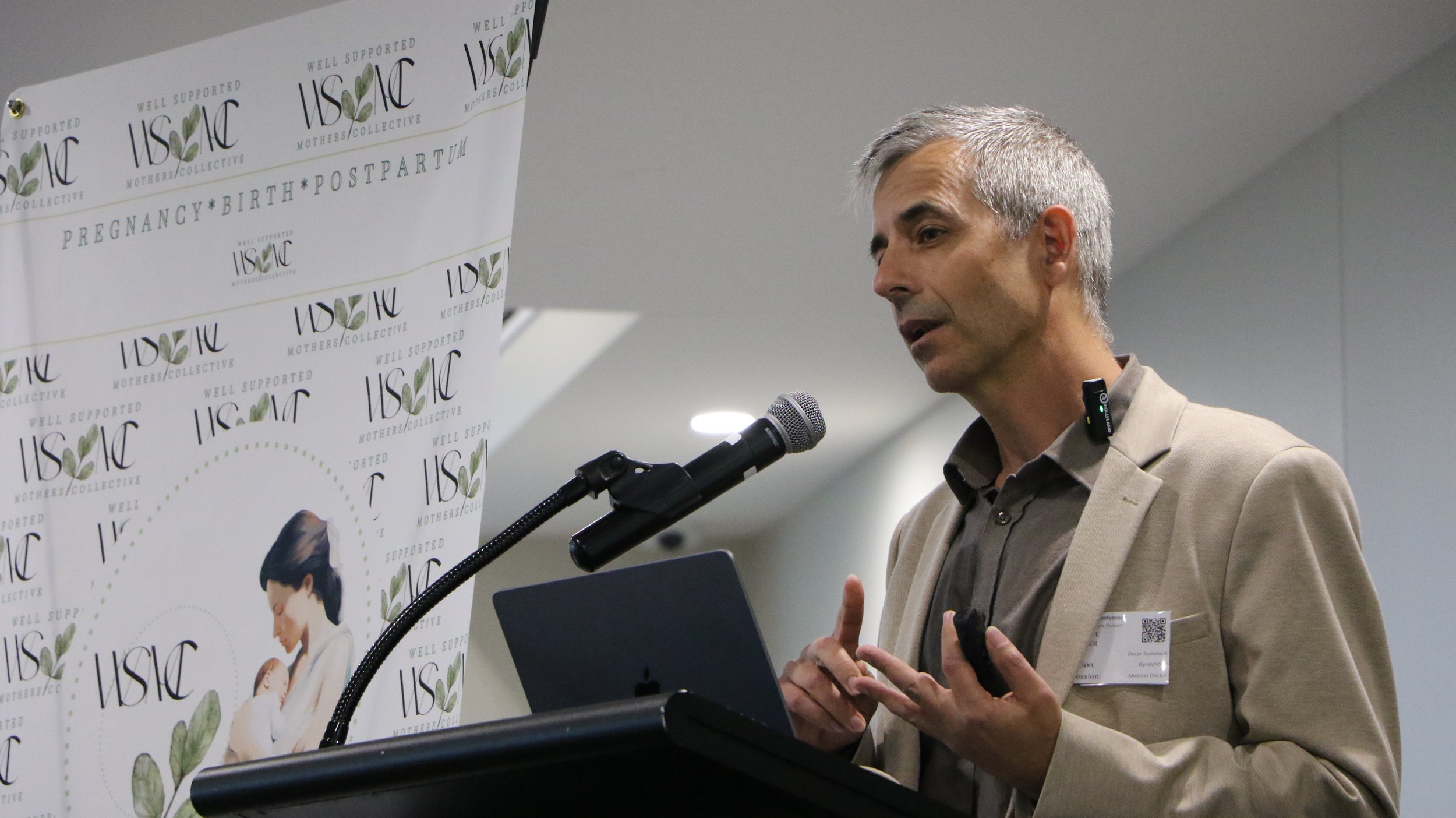
Press Releases,Press Statements
& Media Assets
All content on our Press page is available for use. If you plan to edit or adapt any material, please contact us at wsmotherco@gmail.com for review and approval before publication, so we can ensure all versions align with our values and uphold our medical responsibilities.
-
For Immediate Release GOLD COAST, QLD – 22 July 2025
Groundbreaking Findings Affirm Urgency, 2025 Postpartum Conference Responds
New research confirms that mothers frequently endure profound physical and mental health impacts during the postpartum period.
The timing of this initiative could not be more critical, research revealing that in over 50% of postpartum women, physiological recovery takes between three months to more than a year, with key blood markers remaining disrupted up to 80 weeks postpartum. These findings have struck a chord with clinicians and mothers alike; affirming what the Well Supported Mothers Collective and those in the field have observed for years.
As summarised by Naomi Jansson, Clinical Director of WSMC, “These findings powerfully validate our mission: to acknowledge the full reality of the postpartum experience and to respond with practical, integrated, and long-overdue solutions aimed at improving outcomes for mothers.”
Against this backdrop, the Well Supported Mothers Collective (WSMC) will convene Postpartum Conference 2025: Mother Centred – Shifting the Framework on 27–28 September at the Gold Coast, uniting clinicians, researchers and cultural leaders to accelerate evidence into practice.
Postpartum Conference 2025 will feature expert presentations from obstetricians, GPs, psychologists, IBCLCs, physiotherapists, nutritionists, pharmacists, haematologists and technologists, alongside culturally led speakers from Indigenous and traditional medicine communities. The programme will apply sociological, psychological and biological insights to drive improved outcomes for mothers, babies and families, with panel sessions exploring local strategies that inform systemic change under this year’s theme.
“Frontline and support clinicians are seeing every day the real impact of an under‑resourced and fragmented maternal and women’s health care system,” says Naomi Jansson. “By building integrated, clinician‑led frameworks across disciplines and sectors, we can deliver real‑time solutions and achieve real‑world results for women and their families.”
As those in healthcare know, it can take up to 17 years for new evidence to influence clinical policy and practice. This event brings together industry leaders, providing a forum to accelerate the translation of what we know into real world care across public and private sectors, hospital and community settings.
WSMC is now inviting expressions of interest from sponsors and exhibitors, including charities, community groups and government bodies. This opportunity offers direct engagement within a specialised field of clinical care and solutions, framed around meaningful networking and knowledge exchange.
Uniting with global partners to drive systemic change, the Well Supported Mothers Collective co-edited and officially endorsed the Call to Action for Postpartum, released in June, 2025. This milestone document represents a shared commitment to elevate postpartum care as a global health priority, demonstrating a unified commitment to advancing postpartum care and maternal health globally.
A Call to Action
Postpartum: A Critical Window in Women’s Health.
Every Mother, Every Moment: Postpartum Care Saves Lives
Naomi Jansson, Clinical Director of the Well Supported Mothers Collective, explains: “This global call affirms that postpartum care is not a luxury, it is a life-saving, society-shaping necessity. Our collective and global partners have worked tirelessly, many through volunteer hours, to convene thought leaders, distil research into practice, and push for the reforms that this global statement crystallises.”
Since 2022, the Well Supported Mothers Collective has brought together clinicians, -researchers, cultural leaders and mental‑health professionals to develop real‑time solutions for the real-world of maternal health. “Guided by a mother‑centred philosophy, WSMC supports a growing national and international network committed to integrative, interdisciplinary care,” says Naomi Jansson. “Our goal is clear but urgent: to transform what we know collectively into what we do individually.”
—ENDS—
Media enquiries
Well Supported Mothers Collective
Email: wsmotherco@gmail.com
Phone: 0405946402
Notes to editors:
Article Reference: Narrowing the 17-Year Research to Practice Gap
Article Reference: Pregnancy and postpartum dynamics revealed by millions of lab tests https://www.science.org/doi/10.1126/sciadv.adr7922
Webpage for Postpartum Conference 2025 https://www.wellsupportedmotherscollective.xyz/postpartum-conference-preview
Well Supported Mother’s Collective https://www.wellsupportedmotherscollective.xyz/
Call To Action Link https://www.wellsupportedmotherscollective.xyz/advocacy -
THE Well Supported Mothers Collective: Real-Time Solutions. Real-World Results. Rethinking Maternal Care, Together.
The Well Supported Mothers Collective (WSMC) exists to redefine the standard of maternal care by eliminating barriers that delay integration of expert knowledge into clinical care. We promote real-time solutions that lead to real-world results, developed by clinicians for clinicians, and informed by cultural, psychological, and systemic understanding of the multidisciplinary requirements of maternal health. Our work engages with public, private, hospital, and community settings, driven by women’s demand for better outcomes and clinicians’ commitment to delivering the highest standard of care.
“Frontline and support clinicians are seeing, every day, the real impact of an under-resourced and fragmented maternal and women's health care system,” says Naomi Jansson, Clinical Director of the Well Supported Mothers Collective. “ Recognising the value of contributing to a clinician-led approach, one that builds practical, integrated frameworks designed to work together across disciplines and sectors. It’s through this collaborative model that we can deliver real-time solutions and achieve real-world results for women and their families.”
Driven by education, collaboration, advocacy, and innovation, WSMC supports a growing national and international network of women's health professionals. We are guided by diverse expertise, a mother-centred philosophy, and a bold commitment to integrative, interdisciplinary care, acknowledging that no single practitioner can provide everything to support a woman's physical, psychological and wellness needs throughout the maternal health continuum. Our contributors, leaders in medicine, mental health, culture, and community bring their knowledge into shared spaces where knowledge becomes solutions.
Our mission is clear but urgent: to transform what we know collectively into what we do individually, WSMC is not just raising the standard of care; we are redefining it, together.
-
Mother Centred Philosophy/Certified MotherCentred Care (CMCC)
Philosophy:
The Well Supported Mothers Collective positions mother-centred care as a clinical and systemic imperative, redefining how healthcare for women is conceptualised, delivered, and measured. Informed by interdisciplinary practice, coordinated care delivery, and cultural competency, a mother-centred model represents a shift from fragmented service provision toward integrated, evidence-aligned systems. Centring mothers as the primary axis of care enables more effective intervention, continuity across sectors, and improved long-term health outcomes for women, families, and populations across the lifespan.
CMCC:
The Certified MotherCentred Care framework recognises health as relational, evolving, and shaped by social, cultural, and intergenerational factors. It emphasises strengths-based, contextual, and collaborative approaches, moving beyond institutional models to offer care that is responsive, accountable, and grounded in real-world complexity. The framework is designed to be accessible and applicable for both community members and healthcare professionals, supporting shared understanding, integrated care, and collaboration across diverse settings and roles.
-
A Global Investment in Future Health and Wellbeing
Uniting with global partners to drive systemic change, the Well Supported Mothers Collective co-edited and officially endorsed the Call to Action for Postpartum, released in June, 2025. This milestone document represents a shared commitment to elevate postpartum care as a global health priority.
A Call to Action
Postpartum: A Critical Window in Women’s Health.
Every Mother, Every Moment: Postpartum Care Saves Lives
Naomi Jansson, Clinical Director of the Well Supported Mothers Collective, explains: “This global call affirms that postpartum care is not a luxury, it is a life-saving, society-shaping necessity. Our collective and global partners have worked tirelessly, much through volunteer hours, to convene thought leaders, distil research into practice, and push for the reforms that this global statement crystallises.”
A diverse group of medical and healthcare leaders within the Well Supported Mothers Collective contributed to the Call to Action across many stages of its development, from international working groups to consultation and drafting, demonstrating a unified commitment to advancing postpartum care and maternal health globally.
This global movement outlines key priorities to ensure mothers everywhere receive the care they need and deserve for foundational health as individuals, within families, and across communities.
7 directives, developed over an extensive period of global engagement
Considers psychological, biological, social contexts
Designed for use by policy makers, practitioners, parents (government, hospitals, community groups)
Endorsed by over 15 groups
Jansson concludes: “The challenges in postpartum care are becoming clear and so is the opportunity for meaningful change. Everyone has a role to play. Get informed. Get involved. Be part of the solution. Together, we can ensure postpartum is no longer overlooked, but understood, valued, and properly supported.”
Call To Action Link https://www.wellsupportedmotherscollective.xyz/advocacy
-
Groundbreaking Findings Affirm Urgency, 2025 Postpartum Conference Responds.
As breaking research continues to affirm what those working in the specialised field of postpartum recovery have long understood. Mothers are suffering through the postpartum period, often with profound and lasting impacts on both physical and mental health.
The Well Supported Mothers Collective (WSMC), convener of the Postpartum Conference, is dedicated to real time solutions for real world results between clinical practice, research, culture, and mental health. WSMC has been championing these objectives since 2022; by actively bringing together cross-disciplinary experts for collaboration, education and advocacy to find solutions.
As those in healthcare know it can take up to 17 years for new evidence to influence clinical policy and practice, this event brings together industry leaders; providing a forum to accelerate the translation of what we know into real world care across public and private sectors, hospital and community settings.
The Postpartum Conference provides a platform for diverse voices across the full spectrum of what can be described as Mother Care. From expert clinicians and researchers to cultural leaders and community advocates, the event fosters a more integrated and inclusive understanding of postpartum recovery, one that reflects the complexity of this critical stage in a mother’s life.This diverse representation ensures the conference reflects both clinical rigor and culturally responsive care models.
Postpartum Conference 2025: Mother Centred – Shifting the Framework will take place on 27–28 September on the Gold Coast, bringing together a national representation of care providers dedicated to advancing postpartum care. This landmark event convenes innovative voices across women’s health, uniting expertise from medical, mental health, allied health, and traditional healing disciplines. Presenting a carefully selected range of expert perspectives from obstetricians, GPs, psychologists, IBCLCs, physiotherapists, nutritionists, pharmacists, OBY haematologists, academic researchers, technologists, and culturally led Indigenous and traditional medicine practitioners. This diverse representation ensures the conference reflects both clinical rigor and culturally responsive care models. Open to all who champion women’s health, the conference provides a rich, multidisciplinary platform to explore, connect, and innovate.
The program focuses on applying sociological, psychological and biological knowledge to improve outcomes for mothers, babies, and families. In between the medical expert and research presentations; pannel sessions will explore how local, context-specific strategies can inform broader systemic improvements in maternal health; with an emphasis on collaboration, integration, and personalised care all summed up in this years theme “Mother Centred - Shifting the Framework”.
The Postpartum Conference 2025 is now open for expressions of interest from sponsors & exhibitors, with an invitation extended to charity, community, and government organisations. This is a unique opportunity to connect and engage through in-person conversations within a highly specialised field of clinical care and solutions, designed with a focus on meaningful networking and knowledge exchange.
Article Reference: Narrowing the 17-Year Research to Practice Gap
-
RESEARCH GAP:
Article Reference: Narrowing the 17-Year Research to Practice Gap
https://pubmed.ncbi.nlm.nih.gov/27134218/
Abstract:
“Developing evidence to improve clinical practice and disseminating it to be used by clinicians to improve outcomes for individual patients is important. How long does it take to get evidence into practice? The standard refrain of “17 years to move evidence into practice” is repeated by researchers and clinicians alike with despair. Rather than accepting the inevitability of a long lag in translating research to the bedside, we believe it is worthwhile to examine the origin of the “17-year gap,” to scrutinise how it applies to interdisciplinary research in critical care, and to suggest ways to close that gap”
POSITION: It can take up to 17 years for new evidence to influence clinical policy and practice in healthcare.
WSMC: As those working in healthcare are aware, it can take up to 17 years for new evidence to influence clinical policy and practice. The WSMC aims to establish a forum that accelerates the translation of knowledge into real-world care across both public and private sectors, spanning hospital and community settings, and extending to government, public policy, and education.
CONFERENCE: As those in healthcare know it can take up to 17 years for new evidence to influence clinical policy and practice, this event brings together industry leaders; providing a forum to accelerate the translation of what we know into real world care across public and private sectors, hospital and community settings.
AUSTRALIA MBS FOR POSTPARTUM:
Article Reference: Extensions on time frames of care and extended visit times.
POSITION: From 1 March 2025, updates to Australia’s Medicare Benefits Schedule (MBS) expanded access to postpartum care through endorsed midwives and GPs.
WSMC: Significant gaps remain in the resourcing of postpartum care, particularly in practitioner education, integrated care pathways, and collaborative support services. While updates to Australia’s Medicare Benefits Schedule (MBS) from 1 March 2025 have extended access to endorsed midwives and GPs, with longer consultation times, this change represents only a starting point. Ongoing collaboration with care providers, community organisations, and women and families is essential to identify where more diverse resourcing and targeted support are needed to ensure postpartum care is comprehensive, coordinated, and responsive to need.
CONFERENCE: Significant gaps remain in the resourcing of postpartum care, particularly in practitioner education, integrated care pathways, and collaborative support services. Updates to Australia’s Medicare Benefits Schedule (MBS) from 1 March 2025, extending access to endorsed midwives and GPs with longer consultation times, represent an encouraging step, but only a starting point. An interdisciplinary conference is helping to progress these objectives by creating a platform for collaboration between care providers, community organisations, and experts. This collective engagement is focused on identifying practical solutions and real-world resourcing to ensure postpartum care is comprehensive, coordinated, and responsive to need.
RESEARCH FOR PHYSIOLOGICAL POSTPARTUM IMPACT
Article Reference: Pregnancy and postpartum dynamics revealed by millions of lab tests
https://www.science.org/doi/10.1126/sciadv.adr7922
POSITION: For over 50% of postpartum women, physiological recovery takes between three months to more than a year, with key blood markers remaining disrupted up to 80 weeks postpartum.
WSMC: Research confirms that for 50% of postpartum women, physiological recovery takes between three months to more than a year, with key blood markers remaining disrupted up to 80 weeks postpartum. The findings have struck a chord with clinicians and mothers alike; affirming what the Well Supported Mothers Collective and those in the field have observed for years.
As summarised by Naomi Jansson, Clinical Director of WSMC, “These findings powerfully validate our mission: to acknowledge the full reality of the postpartum experience and to respond with practical, integrated, and long-overdue solutions aimed at improving outcomes for mothers.”
CONFERENCE: The timing of this initiative could not be more critical, research revealing that in over 50% of postpartum women, physiological recovery takes between three months to more than a year, with key blood markers remaining disrupted up to 80 weeks postpartum. These findings have struck a chord with clinicians and mothers alike; affirming what the Well Supported Mothers Collective and those in the field have observed for years.
As summarised by Naomi Jansson, Clinical Director of WSMC, “These findings powerfully validate our mission: to acknowledge the full reality of the postpartum experience and to respond with practical, integrated, and long-overdue solutions aimed at improving outcomes for mothers.”
ABC - POSTPARTUM PHYSIOLOGICAL RECOVERY
Article Reference: Postpartum period longer than commonly thought
https://www.abc.net.au/listen/programs/healthreport/postpartum-pregnancy-complications/105380760
The timing of this initiative could not be more critical. In a recent episode of ABC’s Health Report, Professor Amanda Henry discussed research revealing that in over 50% of postpartum women, physiological recovery takes between three months to more than a year, with key blood markers remaining disrupted up to 80 weeks postpartum. The findings, discussed in the ABC interview Postpartum period longer than commonly thought, have struck a chord with clinicians and mothers alike; affirming what the Well Supported Mothers Collective and those in the field have observed for years.
As summarised by Naomi Jansson, Clinical Director of WSMC, “These findings powerfully validate our mission: to acknowledge the full reality of the postpartum experience and to respond with practical, integrated, and long-overdue solutions aimed at improving outcomes for mothers.”
Press Statements
*Expand headlines to read now, downloadable versions available below.
PRESS RELEASE JULY 2025
STANDING WSMC PRESS STATEMENT
MOTHER CENTRED PHILOSOPHY/CMCC
GLOBAL CALL TO ACTION
POSTPARTUM CONFERENCE 2025
CLINICAL LENS AND REFERENCES
Media Assets
* Click through to view logos, approved images, graphic information







